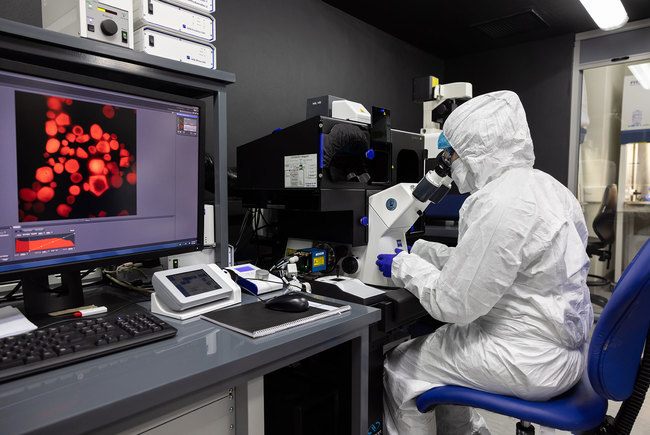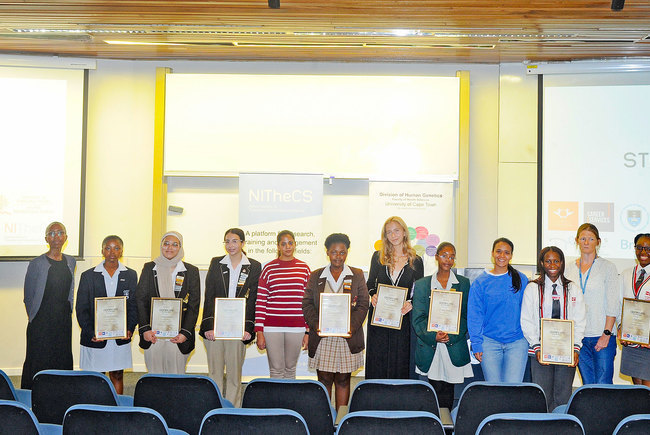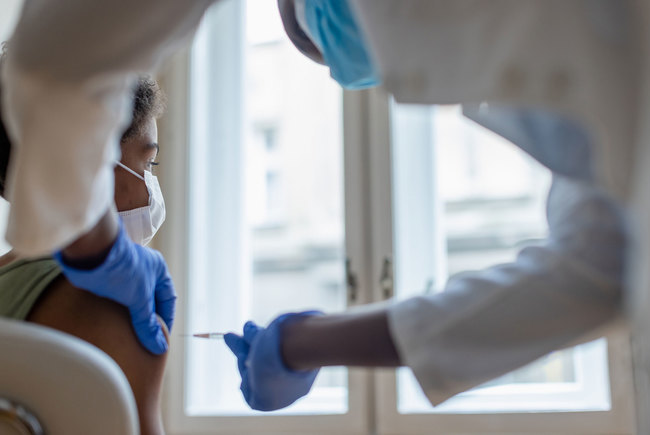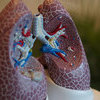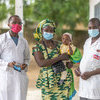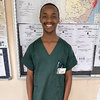Women’s Month: UCT-led clinic a ‘godsend’ in the fight against cervical cancer
11 August 2022 | Story Niémah Davids. Photos Lerato Maduna. Read time 8 min.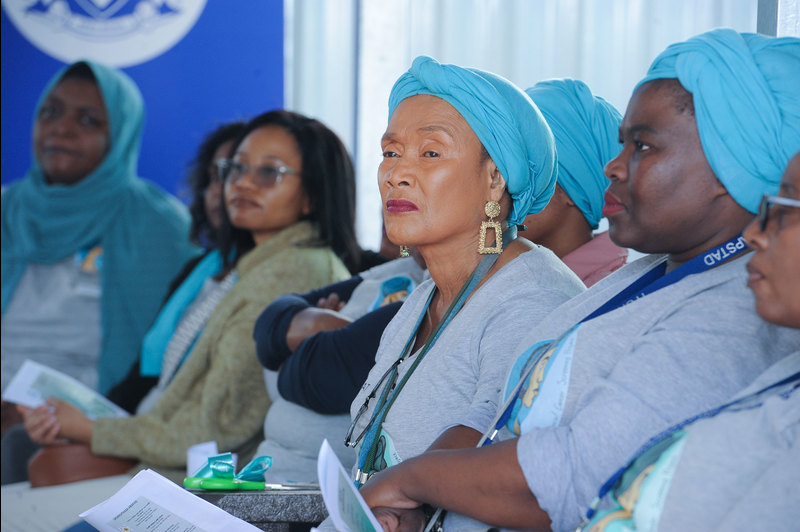
As it intended almost three decades ago, the Khayelitsha Cervical Cancer Screening Project (KCCSP) has touched and changed the lives of thousands of women and adolescent girls living in Khayelitsha. The clinic is one of the community’s most prized possessions – bringing renewed hope in the global fight against cervical cancer.
Spearheaded by the University of Cape Town’s (UCT) Professor Lynette Denny – one of the country’s and continent’s leading cervical cancer researchers – the clinic fast-tracks research into cervical cancer prevention and treatment options, and provides vital human papilloma virus (HPV) screening and treatment. The KCCSP was established in 1995 in partnership with Groote Schuur Hospital (a UCT teaching hospital), the Cancer Association of South Africa, and Columbia University, and is located at the Khayelitsha Community Health Clinic precinct in the bustling Site B.
On the eve of Women’s Day on Monday, 8 August – during a cutting of the ribbon ceremony to launch a new section of the KCCSP clinic – academics, healthcare workers and donors reinforced their commitment to the women of Khayelitsha and to continue the fight against cervical cancer. And the message, shared by guests in attendance was unanimous: phambili ngempilo yabafazi (forward with women’s health). This as the liberation movement song, igama lamakhosikazi malibongwe (let the name of women be praised), reverberated through the clinic.
The clinic at a glance
In the past 27 years, close to 60 000 women have passed through the clinic’s doors for cervical cancer screening. Cervical cancer is the fourth most common cancer globally, and in 2020 claimed the lives of approximately 350 000 women. More than 80% of cases occur in low- to middle-income countries in sub-Saharan Africa, Melanesia, Asia and Southeast Asia. In South Africa, thousands of cases of cervical cancer are diagnosed annually, and the prognosis is not good.
“Screen and treat must add value. It must save lives.”
According to Professor Denny, to help prevent cervical cancer, the KCCSP has for years been testing and evaluating alternative methods to the pap smear. While she maintained that pap smear-based programmes are effective and work well when implemented correctly, the infrastructure and resource requirements are “way above the pockets” of low- and middle-income countries. But Denny said the KCCSP has developed and introduced an appropriate programme that will ensure that women receive effective, safe, acceptable, affordable and feasible care. Known as the screen and treat approach, the programme is designed to detect and treat women with pre-cancerous lesions of the cervix and provides a simple method of treatment that can easily be performed by trained nursing sisters on site.
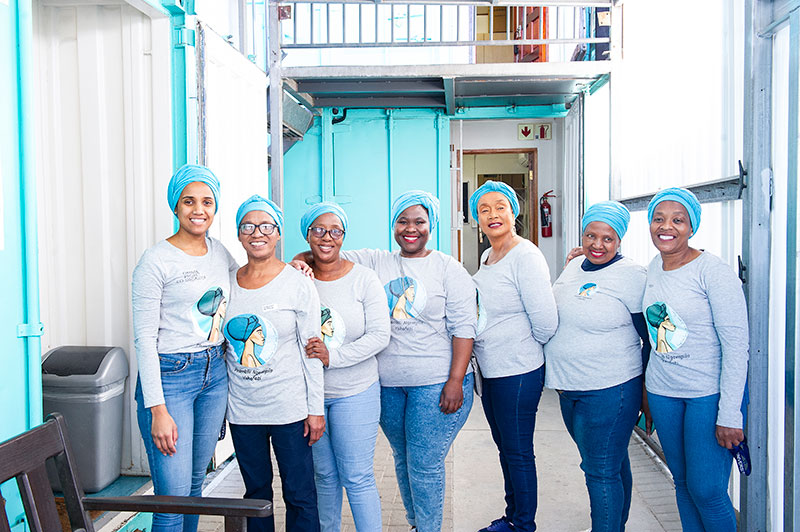
Owing to its success, Denny said evaluating how to integrate the screen and treat approach into routine primary healthcare services offered at other healthcare facilities in Cape Town, the Eastern Cape and Limpopo is currently under way.
“Implementation is often the most difficult part of research. We will need to work very closely with local, provincial and national departments of health to make screen and treat a reality. Screen and treat must add value. It must save lives,” Denny said.
A blessing from above
For the women of Khayelitsha, the clinic is a blessing and a godsend, and they feel privileged to receive word-class care a stone’s throw away from their homes. Thandeka Fatoyi, 31, who’s been a patient at the KCCSP for just over a week, said she was blown away by the service healthcare workers provide and the compassion and kindness they offer all their patients. Fatoyi visited the clinic for the first time this month and received her first screening for HPV, which, she said, came back positive. HPV is a common viral infection of the reproductive tract and is spread through skin-to-skin contact. There are more than 100 different types of HPV, which infect the genitals, mouth and throat. Most HPV infections clear on their own; however, there is a risk that the infection may become persistent and lead to pre-cancerous lesions within in the infected areas. These pre-cancerous lesions may progress and develop into invasive cervical cancer.
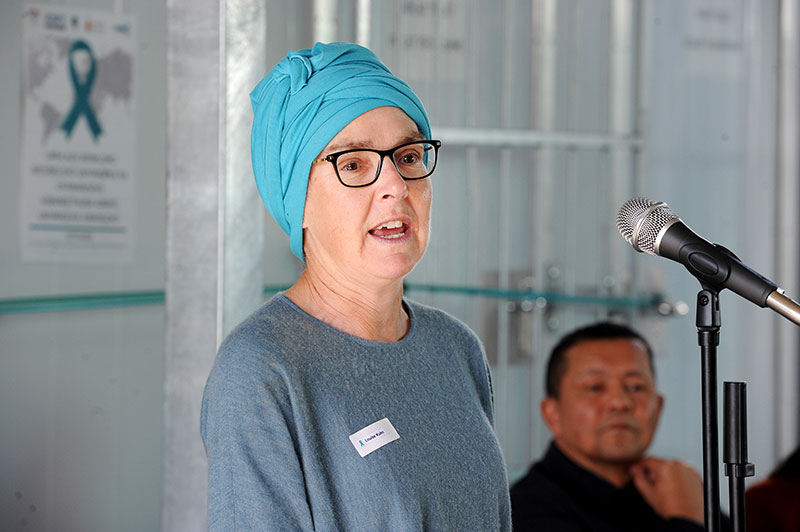
“I didn’t know how important it was to come for this screening. But I know now, and I know that I am in good hands here for my follow-up and the way forward,” she said. “This clinic is a blessing to all of us in this community. All women should come here, and I’ve already started telling all my family and friends about it.”
Lisa Figlan, 47, agreed. Figlan said her visits to the clinic have set her mind at ease and have helped her on her journey to good health. She said healthcare workers at the clinic contribute immensely to this – their innate ability to make patients comfortable and feel at home, despite their underlying stresses don’t go unnoticed. In addition, she said having the free clinic right on her doorstep is a bonus and means that travelling long distances for care at unaffordable rates is no longer necessary.
“I’m grateful for this clinic and for the doctors and nurses who work here and provide us with care and help to keep us healthy. From my heart, I want to say that I appreciate it and I am not the only woman here who feels this way,” Figlan said.
It takes just one woman
Representing Columbia University, Professor Louise Kuhn said it takes just one woman to unite a community and make a difference in many individuals lives.
“One woman can bring us all together … on the same path – all thinking together, all working together, all trying to find ways to solve these problems that we have to face. One woman can make that difference for all of us,” Professor Kuhn said.
“I hope that we can continue on this track and keep our goals of improving women’s health in mind and to continue to find ways around the many, many challenges we have to face.”
Kuhn, who’s been involved with the KCCSP since its inception, said she is delighted that she could be part of its journey to date. She said the clinic is unique because it joins research and clinical practice to service the needs of the community. And achieving its goals would be impossible without the collective effort that draws on the varied expertise of researchers, clinicians and healthcare workers for the betterment of women in Khayelitsha.
“[With this clinic] we’ve managed to bring many pieces together; the research on the one side and services on the other. The community, policymakers, funders and industry are all pieces of a puzzle that require us to work together,” she said. “I hope that we can continue on this track and keep our goals of improving women’s health in mind and to continue to find ways around the many, many problems we have to face.”
Other contributors on the day included the MEC for Health in the Western Cape, Dr Nomafrench Mbombo; the head of health in the province, Dr Keith Cloete; the dean of UCT’s Faculty of Health Sciences, Associate Professor Lionel Green-Thompson; the head of UCT’s Department of Obstetrics and Gynaecology, Professor Mushi Matjila; and family physician at the Khayelitsha Community Health Clinic, Dr Leigh Wagner.
 This work is licensed under a Creative Commons Attribution-NoDerivatives 4.0 International License.
This work is licensed under a Creative Commons Attribution-NoDerivatives 4.0 International License.
Please view the republishing articles page for more information.
Faculty of Health Science News










